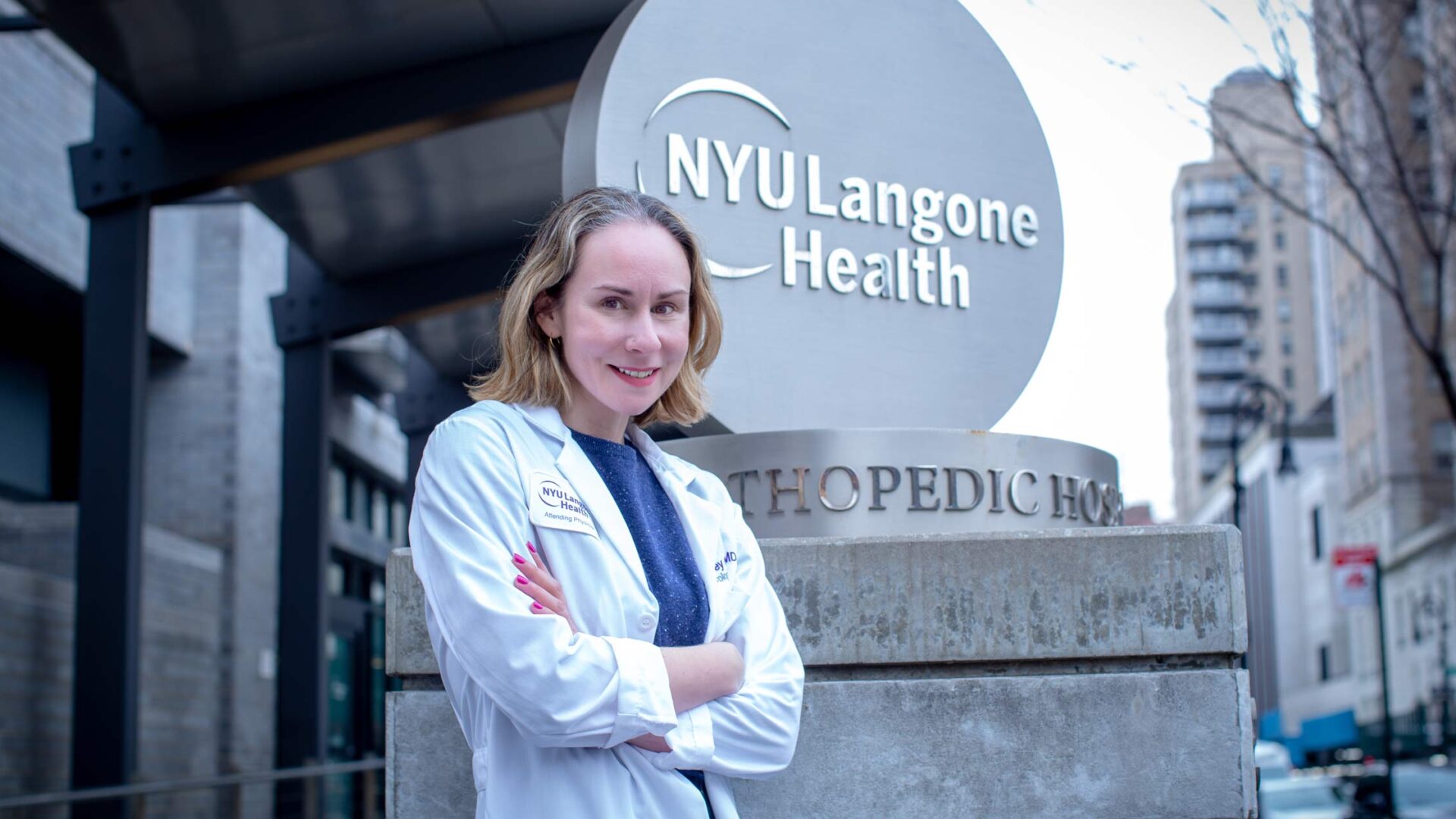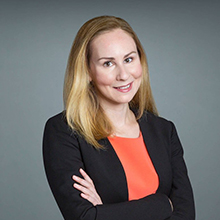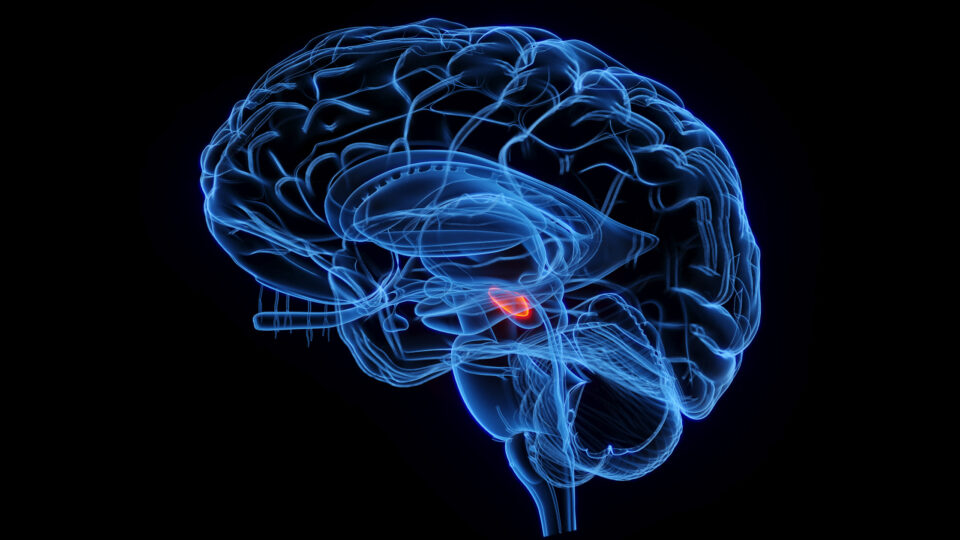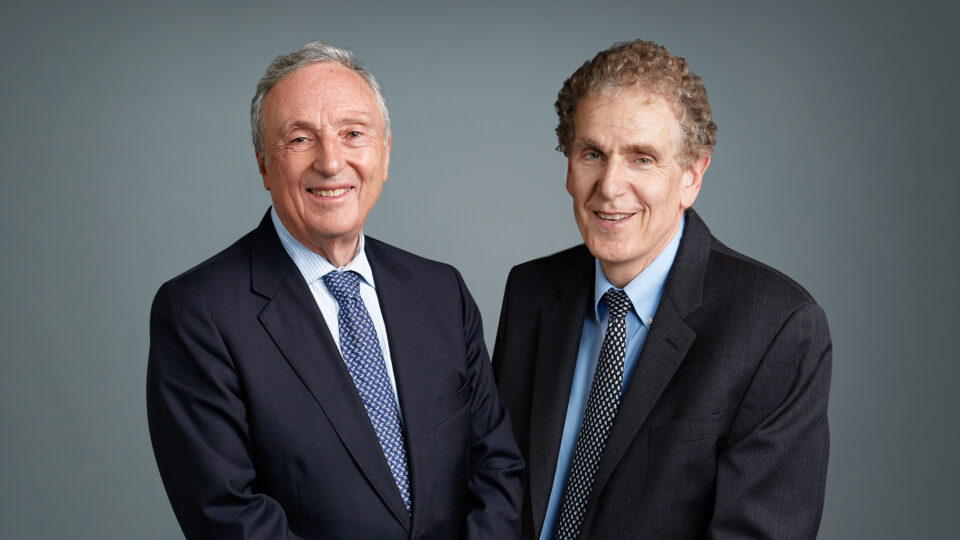NYU Langone’s combined neurology–psychiatry residency—one of only four such programs in the country—is working to bridge gaps between the two specialties. The program produces dual-trained specialists capable of practicing at the intersection of both fields, so that their expertise is greater than the sum of its parts.
Here, program director Lindsey J. Gurin, MD, discusses the value of combining neurology and psychiatry, the high rate of trainee satisfaction, and the growing opportunities for recent alumni. She also explores the economic value of neuropsychiatrists, emphasizing how the specialty better serves complex patients and the need for continued growth.
Physician Focus: What inspired your interest in neuropsychiatry?
Dr. Gurin: I wanted to become a psychiatrist because of my uncle, who had schizophrenia. In medical school, I spent time at a clinic for survivors of brain injury. I saw how hard it could be for people to find treatment for psychiatric symptoms caused by neurological problems. Combining both specialties offered a unique perspective.
“The goal of combined residency is not to produce generalists who can switch-hit between psychiatry and neurology. Combined training makes unique specialists.”
Lindsey J. Gurin, MD
In neuropsychiatry, we aim to bridge the two specialties. We treat patients who do not fit within the confines of either field, who might have a mix of psychiatric and neurological problems that seem unconventional or confusing—this is where we step in.
Physician Focus: Since graduating from NYU Langone’s combined residency program in 2016, you’ve seen it continue to attract top talent and foster unique independence in trainees. What makes the dual program—and training at NYU Langone—stand out?
Dr. Gurin: One aspect is the combined structure, designed to cultivate deep and unique expertise. The goal of combined residency is not to produce generalists who can switch-hit between psychiatry and neurology. Combined training makes unique specialists capable of practicing at the intersection of both fields. Our graduates specialize in epilepsy, multiple sclerosis, cognitive neurology, autoimmune neuropsychiatry, and functional neurological disorders, among others, and in some cases they have created entirely new positions for themselves.
Another strength is our institutional expertise. NYU Langone has a strong and diverse faculty, including seven double-boarded faculty members. All of our trainees receive career and research mentorship from faculty members in both departments, and our departmental leadership is very supportive of our residents.
Physician Focus: What are some examples of practice settings for recent alumni?
Dr. Gurin: Our most recent graduate, Gabriel A. Ben-Dor, MD, has launched a new functional neurological disorders clinic and neuropsychiatric rehabilitation program at NYU Langone Hospital—Long Island. Primary ownership of patients with functional neurological disorders has remained a subject of debate in both specialties, making clinical management challenging. For such patients, it can be really helpful to see a doctor who integrates both perspectives.
Another graduate, Benjamin H. Fuchs, MD, provides inpatient neuropsychiatric consultations at Tisch Hospital and Kimmel Pavilion, bringing a cohesive approach to managing complex cases that often require input from multiple specialties. Dr. Fuchs also sees neuropsychiatric patients as outpatients.
“Within neuropsychiatry, there is an opportunity to creatively express the unique value and functions of our distinct specialty. NYU Langone serves as an excellent model, fostering diverse practice opportunities for neuropsychiatrists.”
According to a recent survey of 133 dual-trained neurologists–psychiatrists, over 90 percent of respondents felt their clinical approach differed from single-trained colleagues and reported treating patients single-specialty colleagues don’t treat. The respondents also felt that dual training enhanced their career satisfaction.
Physician Focus: What are some challenges and opportunities in the field?
Dr. Gurin: Great question. One challenge is that dual-trained neuropsychiatrists are not proceduralists. Our consultations can be quite time-consuming, causing some to question the economic value of our specialty.
Looking at it from a different angle, I believe that neuropsychiatrists are actually cost saving for healthcare systems. As an alternative to sending a patient to two different specialists, a neuropsychiatrist can provide integrated care at the nexus of both fields, saving time for both patients and physicians. When we share patients with our general psychiatry and neurology colleagues, our recommendations are informed by both fields, supporting the referring doctor in the area they’re less familiar with and freeing them up to focus on their specialty.
Within neuropsychiatry, there is an opportunity to creatively express the unique value and functions of our distinct specialty. NYU Langone serves as an excellent model, fostering diverse practice opportunities for neuropsychiatrists across the entire health network.
Physician Focus: How will you address these challenges?
Dr. Gurin: Education is key. The NYU Grossman School of Medicine curriculum now includes preclinical lectures and a clinical clerkship in neuropsychiatry. This encourages students to view these fields as linked from the start, and hopefully sparks interest in combined training for some.
At the resident level, we recently launched a teaching clinic focused on complex neuropsychiatry. We also have a joint case conference series for psychiatry and neurology residents, led by our neuropsychiatry chief resident. The goal is to expand trainee exposure to our specialty and help them develop skills in this area by drawing on NYU Langone’s unique resources.
As a field, we need to train more specialists in high-quality care for patients with complex neurological and psychiatric disorders. To achieve this, we need to introduce trainees to the specialty early and inspire them to bring the two fields closer together.






